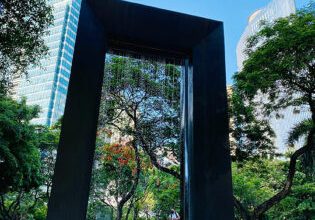Marcos calls for flexibility in devolving functions to LGUs

PRESIDENT Ferdinand R. Marcos, Jr. called on Wednesday for a review of a 2021 executive order (EO) farming out National Government (NG) functions to local government units (LGUs), saying his government will not be bound by a timetable that proposes to complete the transfers by 2024.
“We have to re-examine Executive Order 138 of President (Rodrigo R.) Duterte. We are looking at it… to make it fair,” he told reporters on the sidelines of a Philippine Army event, noting that some poorer municipalities are not capable to taking over NG functions that require project planning and expertise.
Citing a Tuesday meeting with local officials as well as Cabinet secretaries, Mr. Marcos said the participants decided against a one-size-fits-all approach to the devolution program.
He said poorer municipalities would be at a disadvantage because of their low absorptive capacity for taking on NG functions.
LGUs are classified as highly-urbanized cities and provinces on the high end of the revenue-generating scale, and 5th and 6th class municipalities on the low end.
The President said that for the moment, functions that “require planning on a national scale” should be left to the NG.
He said the administration is also looking to pass a law seeking to revamp the LGU classification system.
Last year, the House Committee on Local Government, then chaired by former Valenzuela Rep. and now Social Welfare Secretary Rexlon T. Gatchalian, approved a bill governing the income classifications of provinces, cities and municipalities.
At the time, Mr. Gatchalian proposed that reclassification takes place every two years to “accurately capture the economic activities in the LGUs.”
Mr. Marcos on Tuesday ordered government agencies to study EO 138 for possible amendment, and to determine what NG functions should be devolved to LGUs in a manner that complies with a 2018 Supreme Court ruling.
The Mandanas ruling had awarded LGUs a larger share of NG revenue. In response, the Duterte administration sought to shed NG functions commensurate with the LGUs’ newfound spending power.
The EO had given LGUs until 2024 to fully assume some NG functions.
The mechanism in the Mandanas ruling for expanding LGU revenue was the Supreme Court’s interpretation of the Local Government Code (Republic Act 7160), which had originally granted LGUs a 40% share of NG “internal revenue” in an annual payment then known as the “Internal Revenue Allotment (IRA).”
Over the years, the NG had interpreted this clause to mean 40% of Bureau of Internal Revenue (BIR) collections, and paid out the IRA accordingly, based on BIR collections from three years prior.
The Supreme Court declared this interpretation unconstitutional, ordered that annual payment to LGUs be based on 40% of all national taxes, changed the name of the IRA to the National Tax Allocation, and amended the Local Government Code accordingly.
Mr. Marcos also described EO No. 138, which grants more responsibility and autonomy to LGUs, as no substitute for the Charter change measures being considered by Congress.
“The Charter change efforts are directed at the economic provisions of the Constitution, as far as I understand. And so that’s what that is about,” he said.
“And the reason given by the proponents in the House and those in the Senate is that they need to be changed because the conditions have changed,” he added. “And for us to take full advantage of the new economy, we have to amend the Constitution. So that’s not the same thing.” — Kyle Aristophere T. Atienza




